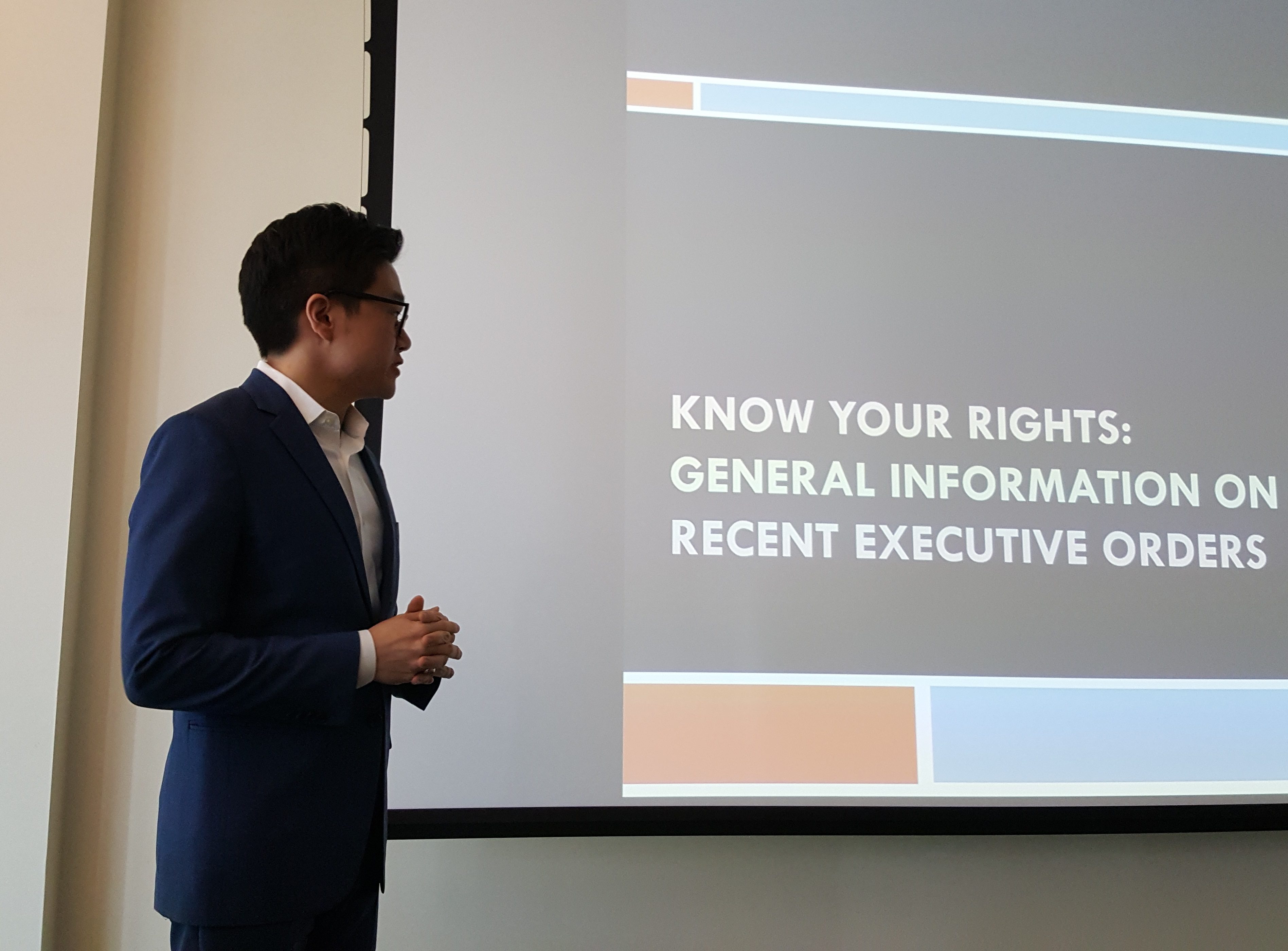
Posted by Jin Kim, JD ’18
“Welcome home, Mr. Kim.”
My heart still flutters whenever I come back to the United States after a trip abroad and the Customs and Border Protection officer welcomes me home. It’s the same feeling I had at my naturalization ceremony five years ago. I was overwhelmed with emotion when the federal judge handed me my naturalization certificate and congratulated me on becoming a U.S. citizen. Although I was not born in the U.S., I love this country and am so proud to call it my home.
And so it has been disheartening to see it become increasingly hostile to immigrants in the recent months. President Trump’s executive orders on immigration have set the tone, operating on a range of false assumptions about the criminality and extremist tendency of people who contribute so much to our country.
Unfortunately, this exaggerated, baseless fear of immigrants is not new. In 2001, my parents and I moved from Korea to the United States – the land of freedom and opportunity – in search of a better life after losing all our savings to the 1997 Asian financial crisis. A couple months after our move, we watched on our local news channel in Atlanta as two airplanes crashed into the Twin Towers. Then, in the aftermath of the 9/11 attacks, as fear of immigrants swept across the nation, my family’s immigration process got delayed indefinitely. I remember the sense of hopelessness I felt after learning that we could not leave the country to attend my beloved grandfather’s funeral in Seoul because our Green Card applications had been stalled.
When my clinical instructor, Sabi Ardalan, told me about an opportunity to present at a workshop at UMass Boston (UMB) on the implications of the recent executive orders, I immediately signed up. Remembering that sense of hopelessness I felt as a non-citizen, I thought that empowering immigrants with knowledge of the executive orders and their rights was one of the best ways I could contribute.
That day, I stood in front of an audience of more than 40 people and helped Sabi and Phil Torrey, another HIRC instructor, explain our nation’s immigration law and policies. We covered everything from the current legal landscape in immigration law in light of President Trump’s executive orders to the basic rights that non-citizens have in the U.S. We also offered practical strategies that undocumented immigrants can use to protect themselves when approached by enforcement officials.
I felt energized as our team answered the questions of advocates and people directly affected by the policies themselves. There was anxiety and uncertainty in their questions, but also defiance and resistance. There was also solidarity, as allies of different races and ethnicities asked what they could do to help immigrant communities.
The UMB workshop is one of many HIRC has organized in recent months – for families in Somerville, for members of the Chelsea Collaborative, for doctors at Massachusetts General Hospital, among others. The response has been overwhelmingly positive.
Maura Mendoza, a community organizer and leader of the Somerville sanctuary team, wrote to the HIRC team after a recent workshop in Somerville, noting that the sign-up sheet for another workshop was already filling up.
“Before we go into the planning for the next one, I would like to take a moment to say thank you all for your hard work and dedications to our families,” she wrote. “It was very emotional, I think, for most of them, so we appreciate the students were mindful and caring.”
On behalf of HIRC, I would like to thank UMB and other organizers who have hosted us at their workshops this year. And to all the non-citizens who may be experiencing the same sense of hopelessness I felt after the 9/11 attacks, please know this: President Trump’s executive orders do not represent what this country truly is. You belong here as much as any of us. We stand with you, and we are here to help.


